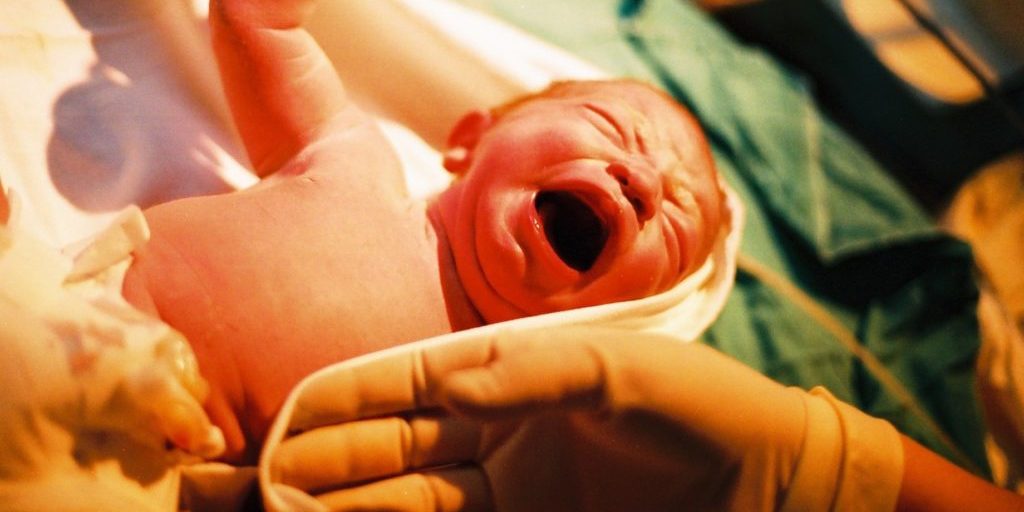
The Curse of Eve: Part One (Chris Marley)
The narrative of God’s curse on Eve is iconic. The danger with iconic narratives in Scripture is that we do not take the time to ensure that we understand them, or worse yet, we might press application from a wrong understanding. We have already seen that the weight of the fall is attributed to Adam as the federal head in Bridefall. Yet Eve did sin, and that sin carried a curse and chastisement.
There are four phrases here dealing with two concepts, but we will get to the second concept and phrase set in the next article. The first two phrases, recorded in Genesis 3:16, are about children. Eve’s punishment, and the punishment of female offspring, is increased pain in childbearing and bringing forth children. As a side note, I have never liked the translation of “multiply your pain” as it accidentally implies that there would have been pain prior to the fall, but it is admittedly difficult to find a natural verb form for the “I will much make-great” of the original text. This repetition in the curse is common for Hebrew, and the emphasis is that childbirth will be a painful experience.
It is important to note here that there is grace even in the curse. Eve is not declared barren and unable to bear children, only that she will endure great pain in childbirth.[1] This is a beautiful theme of scripture seen time and again, where chastisement will show the gravity of sin, but there is always grace amidst discipline (though not with judgment). Hebrews tells us that it is a sign of our being children of God.[2] God loves us enough to reprove us as Father.
It is extraordinary that God would bring the greatest pain into her life in tandem with the greatest joy. Paul, in Romans 8:18-23, extends the metaphor beyond just the church to all of creation. In his letter to the Roman church, Paul speaks of all of creation in bondage to decay groaning in pains of childbirth, and that this applies especially to the saints waiting for redemption of their bodies. Obviously, this is dealing with looking forward to Christ’s return and the creation of new heavens and new earth.
It is a pain and grief of the fall as the new creation is anticipated. This parallel metaphor depicts the whole of fallen history (from eviction from Eden to Christ’s second coming) as one long season of labor. The Bride of Christ is being composed, constituted, and formed while the birthing pains ensue. Christ was born, lived, and died in part to groan with us to be our sympathetic mediator. Paul says in verse 26 that the Holy Spirit too groans with us. Yet, the labor is not in vain. When the child is born, the pain will be forgotten, just as God designed earthly mothers. Christ uses this same metaphor, explaining the joy of when he sees them again as being like the joy of the mother after birth (John 16:21).
Certainly, Eve’s sorrow in bringing forth children did not fully end after the labor pains stopped. Having known the garden, she would have to raise her children in a fallen world. For Eve, that sorrow would be especially poignant. Often we forget the sorrow Eve must have faced in not only losing a child, but in one of her sons murdering the other. She indeed brought forth her child with pain.
While no record is given of Eve’s tears, we see the grieving of Mary at the foot of the cross (John 19:25-27). As Christ left his earthly mother to cling to his bride (the church), fulfilling Genesis 2:24, he directed Mary’s maternal instinct to the disciple John, that she might see his work as Savior. In this same narrative, later on, there is a beautiful fulfillment of the rejoicing anticipated, when the one who was given charge of Mary would have returned home to report the emptiness of the tomb, that Christ had risen (John 20:10).
The church today is often beset with grief collectively as it strives to raise up saints in a fallen world. When a member of the church is removed from the roles on account of unrepentance in sin or on account of death, the pain of childbearing reverberates throughout the church. Yet again we see the grace in the chastisement. There is a church, and it’s made up of sinners saved by grace. Beloved saints may die, but the sting of death is gone for them, and “we do not grieve as those who have no hope.” All these things should drive us to pray all the more for the day when all is made new. Pray for the day when sin with all its curses is “folded up” with the universe and “changed out like a garment.” Let us cry with John in Revelation 22:20, “Amen. Come, Lord Jesus!”
Chris J. Marley is the Senior Pastor of Miller Valley Baptist Church in Prescott, Arizona. He holds an M. Div. from Westminster Seminary California (2009).
